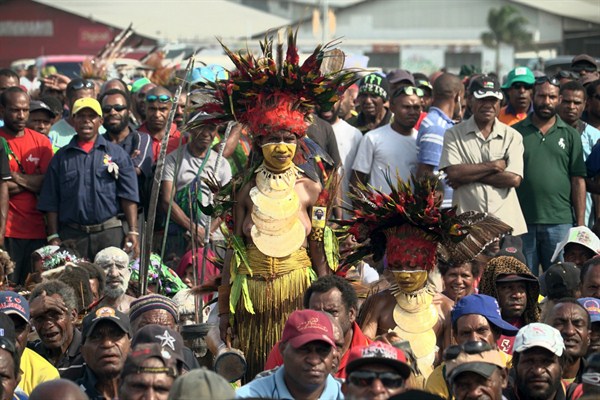After an election marred by violence and accusations of fraud earlier this summer, Papua New Guinea’s incumbent prime minister, Peter O’Neill, returned to lead the government amid lingering allegations of corruption. With average Papua New Guineans ready for the government to tackle the numerous problems facing their country, O’Neill will have 18 months before his opponents can challenge him again. In an email interview, Jonathan Pryke, a research fellow and director of the Australia-Papua New Guinea Network at the Lowy Institute in Sydney, discusses the context and turmoil of the latest elections, why people are ready to move forward, and what the government must do to survive in the months ahead.
WPR: Papua New Guinea’s most recent round of democratic elections ended in chaos and uncertainty. Can you explain what happened and why?
Jonathan Pryke: Elections in Papua New Guinea are an incredibly complex process. It’s easy to fall into the trap of painting a negative picture of the electoral process, but it is important to remember what a marvel it is that they are even able to pull them off in the first place. Much of the country’s population is incredibly hard to access. More than 3,340 candidates vied for 111 seats; there were 10,830 polling places and 28,000 polling workers spread across some of the most remote and rugged parts of the country. Elections under such conditions were always going to be messy. This has certainly been the case in Papua New Guinea.

